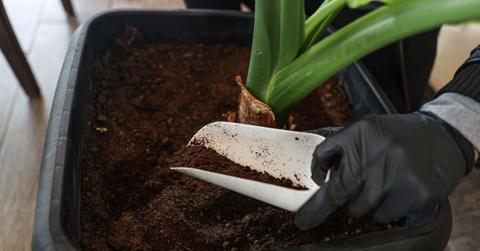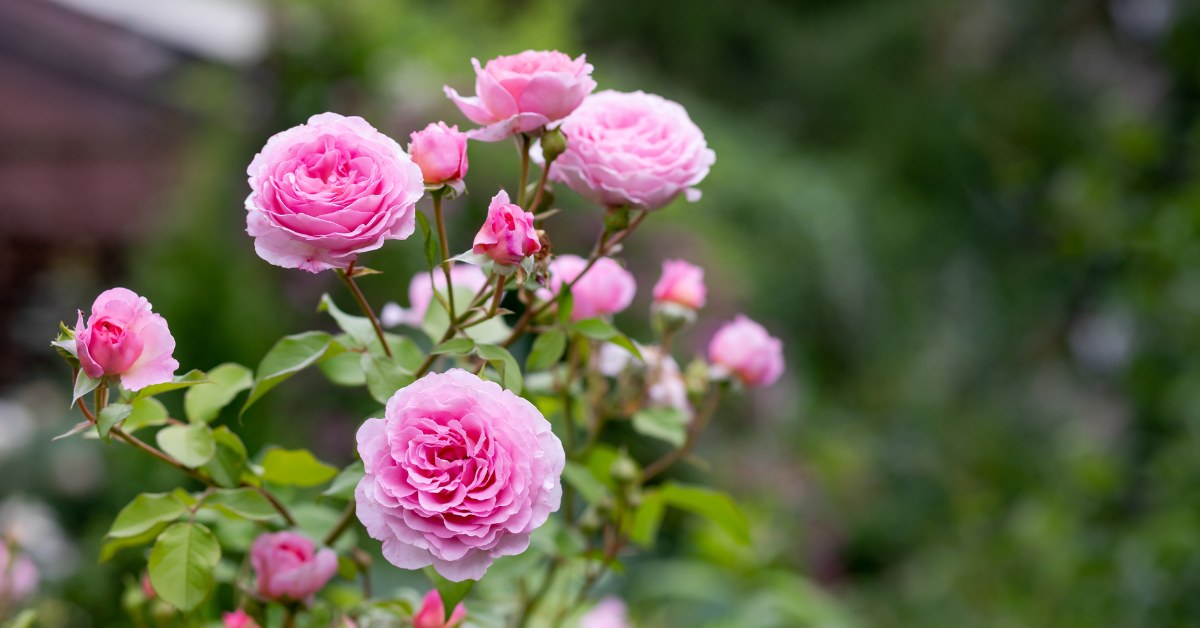You Should Never Give Coffee Grounds to Certain Plants — Here's Why
Coffee grounds dramatically change the soil's pH, which may upset plants that prefer less acidic growing conditions.
Published May 29 2024, 2:52 p.m. ET

Anyone who has ever tried their hand at composting likely knows just how popular tossing spent coffee grounds in the pile can be. Not only can coffee grounds add some of those much-needed "browns" to your compost, but the grounds themselves make a powerful soil amendment that can help your plants thrive.
Sadly, not all plants benefit from that added punch a touch of coffee can pack. Some plants don't like coffee grounds at all. Let's explore the benefits coffee grounds can provide to certain plants and learn which plants should just say "no" to that cup of Joe.

What plants don't like coffee grounds?
Whether you've just purchased some new plants and you want to see whether or not you can sprinkle some of your old grounds on their soil, or you're looking to try something new with the existing plants in your garden, it's important to know which plants will benefit from all of the additional nutrients coffee grounds can add to the soil.
According to Real Simple, some plants that don't like coffee grounds include:
- Lilacs
- Lavender
- Geraniums
- Squash and zucchini
- Roses
- Asparagus fern and asparagus
- Chinese mustard
- Italian ryegrass
- Campanula
- Salvia
- Achillea
- Thyme
- Rosemary
- Russian sage
- Forsythia
- Phlox
- Yucca
- Cacti and succulents
- Tomatoes
- Peppers
- Eggplants
- Melons
- Cucumbers
While this is quite a good list, it's by no means exhaustive, so double check your particular plant's pH and nutritional needs before you try adding coffee grounds to the soil.
Why wouldn't you put coffee grounds on your plants?
Coffee grounds add a lot of acid to the soil, which is why those plants that prefer a higher pH — like blueberries, rhododendrons, and azaleas — all benefit from adding coffee grounds, according to the Java Presse blog. That's not all coffee grounds have to offer when used as a soil amendment. The Forestry blog says they can also help improve nitrogen levels and give soil structure a much-needed boost.
Plants need nitrogen because it plays an important role in how they process energy from sunlight, AKA: photosynthesis. However, too much nitrogen can be a bad thing for certain plants, and it can cause them to put too much energy into leaf production instead of into fruits or flowers. It's this interaction that puts some of those food bearing plants (like tomatoes) on the list of coffee adverse plants.
And then there's the other quality coffee possesses, and it's the reason most humans start their day with a big old cup of it: caffeine. Some plants are sensitive to the caffeine content in the grounds, which causes wilting, stunted growth, and even yellowing flowers. Just like people, some plants are more sensitive to that ingredient than others.
All of this isn't to say that coffee doesn't have its place in your garden. It's just that sitting down in your yard and admiring all of the hard work you've put into your landscape while sipping on a steaming cup of coffee may be as close as it should get to some of your more sensitive plants!